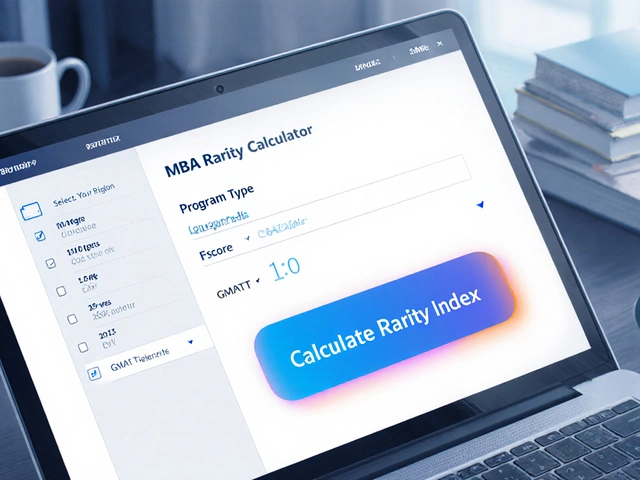
If you're wondering whether a Google certificate is worth your effort, you're definitely not alone. The ads make it sound like you'll finish a course and walk right into a new job, but the reality? It's more complicated. There are some serious upsides, but you need to know the full picture before diving in.
First off, what makes a Google certificate stand out among the endless choices for online courses? They're practical, focused on real-world tech jobs (think IT support, UX design, project management, and data analytics) and they're built by a tech giant everyone recognizes. Some people finish in a few months, learning at their own pace and spending way less than they'd shell out for a college degree.
But here's where things get interesting: not all certificates are created equal. A Google stamp might open doors, but not every employer will see it as a golden ticket. If you’re just starting out, these certificates can help you get a foot in the door, especially if you combine them with personal projects or internships. But if you think it's an instant pass to a $100,000 salary, that's just not how it works—at least, not for most folks.
- What Actually Is a Google Certificate?
- Do Employers Really Care?
- The Real Cost—Time, Money, and Effort
- Should You Go for It or Not?
What Actually Is a Google Certificate?
When people talk about a Google certificate, they're usually referring to Google's Career Certificates offered on Coursera. They're online programs designed to get you job-ready for high-demand roles like IT support, project management, data analytics, and UX design. No college degree or tech background is required, so pretty much anyone can sign up and start learning.
Here's the cool part: Google worked with hiring managers and experts to build these courses based on the skills that real companies want. Each certificate is split into a series of video lessons, quizzes, and hands-on projects. The idea is to walk you through real-world tasks—like fixing a computer network, analyzing data with spreadsheets, or proofreading a UX wireframe—so you’re not just reading theory, you’re actually doing the work.
You knock out each module at your own pace. Most people finish in 3 to 6 months if they put in about 5-10 hours a week. Check this out: as of early 2025, over 2 million folks have signed up for Google Career Certificates.
- Available on Coursera, charges a monthly subscription fee (around $39/month, but often there are free trial weeks).
- Courses include digital badges and portfolio-worthy assignments you can show to employers.
- Some programs even match graduates with partner employers through Google's own job platform.
Here's a simple breakdown of what Google currently offers:
| Certificate | Main Focus | # of Courses | Typical Duration |
|---|---|---|---|
| IT Support | Computer troubleshooting, networking basics | 5 | 3-6 months |
| Data Analytics | Spreadsheets, data visualization, SQL | 8 | 4-6 months |
| Project Management | Agile project tools, workflow basics | 6 | 4-6 months |
| UX Design | Design thinking, wireframes, Figma basics | 7 | 5-7 months |
| Digital Marketing & E-commerce | SEO, content strategy, shop platforms | 7 | 3-6 months |
What sets these apart from random courses you’ll find online is that Google certificate programs come with some real employer connections. Google claims over 150 companies are using its talent pipeline to find entry-level hires.
The bottom line? If you want structured, job-focused skills and a certificate from a name that pops on a resume, this is one of the fastest and most affordable ways to do it right now. Just know that it’s not magic—you’ll get out of it what you put into it.
Do Employers Really Care?
This is where a lot of people get stuck: does having a Google certificate really make a difference when you’re job hunting? Truth is, it depends on the employer and the role. Let’s break down how companies actually see these credentials in 2025.
Tech giants like Google, IBM, and some big-name companies are pretty vocal about supporting skills-based hiring. For entry-level jobs—especially in IT support, data analytics, or project management—a Google certificate can help set your resume apart. Google even connects certificate graduates with a job platform that’s supposed to make finding opportunities easier. That being said, nobody’s promising a guaranteed job, and there’s no secret handshake involved.
Here’s what’s actually happening in the market right now:
- Some hiring managers see Google certificates as proof you’ve got baseline knowledge and can commit to learning.
- Smaller companies might be impressed simply because they don’t get hundreds of applicants waving official credentials.
- Recruiters in IT support have said they’ll interview anyone with a Google or CompTIA cert, especially for entry-level roles.
- For roles outside Google’s covered areas (think software engineering or advanced design), most employers want more. That means real experience, a portfolio, or further training.
Here’s a tip: your location matters a lot. In big tech hubs like San Francisco or New York, hiring competition is steep, so one certificate is just a start. But outside those epicenters—think smaller cities or remote gigs—having a recognized cert can move you higher up the pile. Also, not every hiring manager cares about fancy degrees. Some just want proof you can learn, adapt, and get stuff done.
If you’re going for a career switch, a Google certificate isn’t a golden ticket, but it can open the first exit off your current path. Couple it with networking, a few side projects, or even volunteering in your new field, and you’ll stack the odds in your favor.

The Real Cost—Time, Money, and Effort
Plenty of people jump into a Google certificate thinking it’s cheap and quick. So what’s the real story on what you give up—whether it’s cash, hours, or just pure brainpower?
Let’s start with money. In the United States, most Google certificates cost $49 a month on Coursera. That’s a subscription fee, not a one-time payment. So the longer you take, the more you pay. Let’s say you blast through the material in three months—that’s about $150 out of pocket. But if life gets in the way or you take it slow, it could stretch to $300 or more. There’s no hidden upsell, but you’ll still need access to a computer and a reliable internet connection, which adds up if you don’t already have both.
Now, how much time does it really take? Google advertises that most of their certificates can be finished in around 3-6 months if you put in about 10 hours per week. Some people can crank it out quicker; others might need longer, especially if you’re learning completely new stuff. You can pause your subscription, but once you stop, you’ll lose access to the material and your progress.
| Certificate Program | Average Completion Time | Average Total Cost |
|---|---|---|
| IT Support | 3-6 months | $150–$300 |
| Data Analytics | 5-7 months | $245–$343 |
| UX Design | 6-8 months | $294–$392 |
| Project Management | 4-6 months | $196–$294 |
The biggest hidden cost? Your commitment. It’s all self-paced: no pressure from teachers, but also zero hand-holding. You have to manage your own schedule and push through the boring parts. If you’re coming in with zero background, expect to spend extra time Googling things on your own—or asking for help on forums. On the upside, you really do get out of it what you put in.
Boredom or tech hurdles can slow you down, but you don’t need to worry about buying textbooks, pricey exams, or travel. Just pure focus and motivation will decide how much you pay—and what you learn.
Should You Go for It or Not?
This is the part everyone cares about: is a Google certificate actually going to pay off for you? Let’s get honest. If your goal is to break into tech or switch careers quickly, these programs can totally open up opportunities—especially in roles like IT support, data analytics, or project management. In 2024, Google claimed that "over 75% of graduates report an improvement in their career within six months of completing their certificate" (source: Google Career Certificates Impact Report). But improvement could mean anything from a promotion to just getting more interviews, so take that number with a pinch of salt.
The biggest wins come if:
- You need skills for entry-level work, not top-tier jobs.
- Your resume is thin or you’re switching industries.
- You add hands-on work—like a GitHub project or freelance gigs—alongside the certificate.
- You’re ready to network and hustle; the certificate won’t replace actual job hunting.
The cost—$39/month on Coursera as of spring 2025—makes it affordable, but stacking up a few courses could take you 6-8 months and a couple hundred bucks. Not free, but still way cheaper than traditional college.
Now, a Google certificate is no magic bullet. You won’t jump to a senior role, and you might have to start in entry-level positions even if you’ve worked in different industries before. Also, not every employer is impressed. According to a recent Forbes article:
"While Google certificates fill an important gap in affordable education, recruiters still value previous work experience and hands-on projects even more."
If you’re hoping for a flexible, teach-yourself option that could get you in the door in tech, go for it—just keep your expectations real. If you want to go deep or need a credential recognized everywhere, you might want to combine it with something else or keep studying after you finish.




